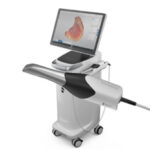Vascular doctors, also known as vascular surgeons, are specialist physicians expertly trained in the diagnosis, treatment, and management of conditions affecting the vascular system. This intricate network of blood vessels – arteries that carry oxygen-rich blood from your heart to the body, and veins that return blood to the heart – is crucial for overall health. Think of your blood vessels as the essential roadways of your circulatory system. When blood flows smoothly, your body functions optimally. However, conditions like atherosclerosis, or hardening of the arteries, can create blockages, disrupting blood flow and potentially impacting any part of your body.
More Than Just Surgery: The Comprehensive Role of a Vascular Doctor
It’s a common misconception that vascular doctors solely perform surgeries. In reality, a significant part of their practice involves patient education and exploring all available treatment options. While vascular doctors are indeed skilled surgeons, they frequently manage patients whose conditions don’t necessitate surgical intervention. Many vascular problems can be effectively treated using conservative methods such as medication, lifestyle modifications, and exercise programs. As many vascular specialists emphasize, a considerable amount of their time is dedicated to guiding patients towards the least invasive and most effective treatment strategies, often avoiding surgery altogether.
Expertise in All Vascular Procedures: A Wide Range of Treatment Options
Unlike some specialists who might focus on a narrow range of vascular interventions, vascular doctors possess comprehensive training in all facets of vascular care. This includes performing complex open surgeries as well as utilizing minimally invasive endovascular procedures. The treatment approach is tailored to each patient’s unique needs. Some patients might benefit most from traditional surgery, while others are better suited for minimally invasive techniques, and many may not require surgery at all. Vascular surgeons are “treatment agnostic,” meaning they prioritize the most appropriate treatment for the individual patient rather than favoring a particular method. This ensures patients receive the optimal care plan based on their specific condition and circumstances.
Building Lasting Relationships: Long-Term Vascular Health Management
The patient-doctor relationship with a vascular specialist often differs from that with other types of surgeons. While some surgical specialties involve a focused procedure followed by a relatively short period of post-operative care, vascular doctors frequently establish long-term relationships with their patients. Vascular disease is often a chronic condition requiring ongoing management. Therefore, patients can rely on their vascular doctor for continuous care, monitoring, and support for their long-term vascular health needs. This ongoing partnership is crucial for managing vascular conditions effectively and proactively.
Scope of Practice: Addressing Vascular Issues Throughout the Body
Vascular doctors are equipped to manage arteries and veins in nearly every part of the body, with the notable exceptions of the brain and heart – these areas are the domain of neurosurgeons and cardiothoracic surgeons, respectively. A vascular doctor’s expertise extends to critical areas such as the carotid arteries in the neck, which supply blood to the brain. They also treat conditions affecting the aorta, the body’s largest artery, as it extends from the heart into the abdomen. Furthermore, peripheral vascular disease, commonly affecting the arteries of the legs and feet, falls within their area of specialization. This broad scope highlights their crucial role in maintaining circulatory health across a wide range of bodily systems.
When Should You Consult a Vascular Doctor? Recognizing the Need for Specialist Care
Typically, individuals are referred to a vascular doctor by their primary care physician. Referrals often occur when a primary doctor suspects a vascular issue based on symptoms or risk factors identified during routine check-ups. Sometimes, a patient’s first encounter with a vascular doctor happens in a hospital setting following an unexpected vascular event. You might be referred if you experience symptoms like leg pain and are diagnosed with peripheral arterial disease. Individuals in high-risk categories, such as smokers, those with diabetes, and/or those with high blood pressure, should consider establishing a relationship with a vascular doctor for proactive management and preventative care.
Find a Specialist


